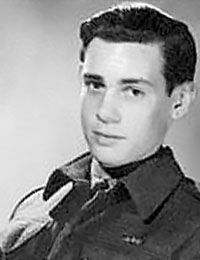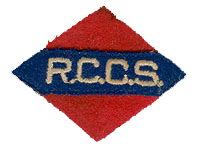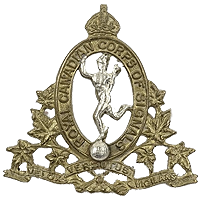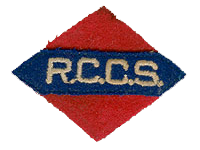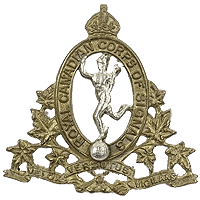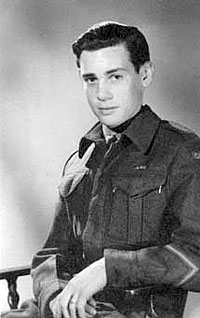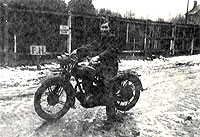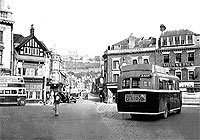Lorne Phillips was born in 1925 in Toronto, Canada. When he was 3 months old his Father deserted him and his Mother. He was raised as an only child by a single parent. Lorne graduated high school in 1941 when he was sixteen and was ready to face the world. World War II had been going on for 2 years and Lorne had a yearning for adventure and glory˜he just had to get into the fray, a young boy's dream. Living fifteen hundred miles inland, he was a stranger to the sea and had no desire to join the Navy. Being a fighter pilot was a dream but he could not meet requirements. That left the Army and after two attempts at enlisting, he finally convinced the army recruiters in another city that he was eighteen years of age. At the end of his basic training he volunteered for "radio oriented training". Five months after his enlistment, he and approximately 250 other volunteers of "radio oriented training" from across Canada found themselves aboard a troop carrier and soon were in the United Kingdom, 1942.
Radio oriented training was another name for Radio Direction Finder also known as Radio Location and which eventually was known by the acronym RADAR. As trained radar operators or operators of electrical method of fire control, they were loaned to the British anti aircraft artillery along the South coast of England. Assisting and teaching the British, mostly young women, on the use of radar the Canadians aided in the defence against aerial aggression of Britain by the Luftwaffe. Five months after arriving in the U.K. Lorne again was on the move. This time on a landing craft headed for Dieppe, France. Close to the French shore the craft was damaged by shell fire and Lorne spent a few uncomfortable hours in the water hanging on to debris until he was finally spotted and picked up and returned to Britain.
Following D-day Lorne was in a truck convoy heading for the Falaise Gap when the convoy he was in was bombed by US Air Force Flying Fortresses (friendly fire), causing 300 casualties, killed and wounded. A few days later Canadian and Polish troops were again bombed by allied air force causing 400 casualties, again friendly fire.
A trip back to England to repair a broken wrist for a couple of months and he was back in the fray catching up in Belgium and on into Holland. He was overtaken with grief when he first seen Dutch people existing on tulip bulbs and such. He crossed into Germany and back into Holland.. When the rumours of a peace filtered down the lines in May, 1945 he found it hard to believe but when the cease-fire orders were given he was sure the war was over. There were no parties and no civilians to help him celebrate. Instead he pondered his future. Having spent one fifth of his lifetime in uniform, Lorne wondered what was in store for him, a slow trip back to Canada? Adjust to civilian ways? Find a job? Find a bride? Raise a family?
Within a few days of the armistice, he was asked to volunteer for the Pacific front. Facing the possibility of being part of an army of occupation in Germany and not being able to fraternize with enemy civilians, he did not hesitate for a moment to volunteer yet again. Yes, he would go to the Pacific. A quick train ride into Belgium, catch a boat ride back to England, another train ride to Bristol to board another troop carrier. The ship was already filled with other volunteers and the gangplank was raised as the last man of the group stepped onto the ship's deck. Five days later he was in Halifax, Canada. Another few days on a train and he was soon enjoying 30 days of leave at home. While he was on leave the Japanese capitulated and three months later he became a civilian. A civilian who was too young to drink by Canadian standards as the drinking age was 21.
What does he remember about the war besides the sounds, the sights, the smells, the not so good food, the lack of sleep, the cold and the wet?
Heartbreaks:
Civilians who were uprooted from their homes.
Civilians caught in the path of advancing/retreating armies.
Civilians who had their food supplies denied them by a very cruel enemy.
Losing friends to the wraths of war.
Remarkable feats:
The building of a Bailey Bridge over the Rhine river.
Thrills:
Driving over a Bailey Bridge spanning the Rhine river.
Heartfelt memories:
Of the Dutch people as a whole and of their gratitude to Canadian and other allied soldiers. The ability to laugh at some inane joke as he could hardly stay awake because of the lack of sleep, the cold and the hunger.
Being Thankful:
For the opportunity to see parts of the world even if it was wartime.
For being of sound mind and body at the end of the war.
For being able to, and wanting to, visit Holland on the 60th anniversary of her armistice, and help her celebrate.
Please invite me back in another 5 years.
